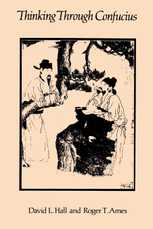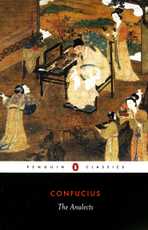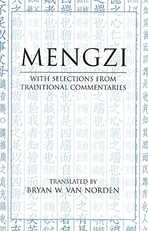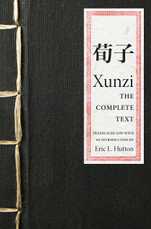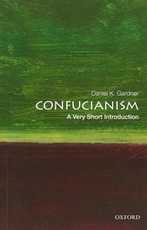
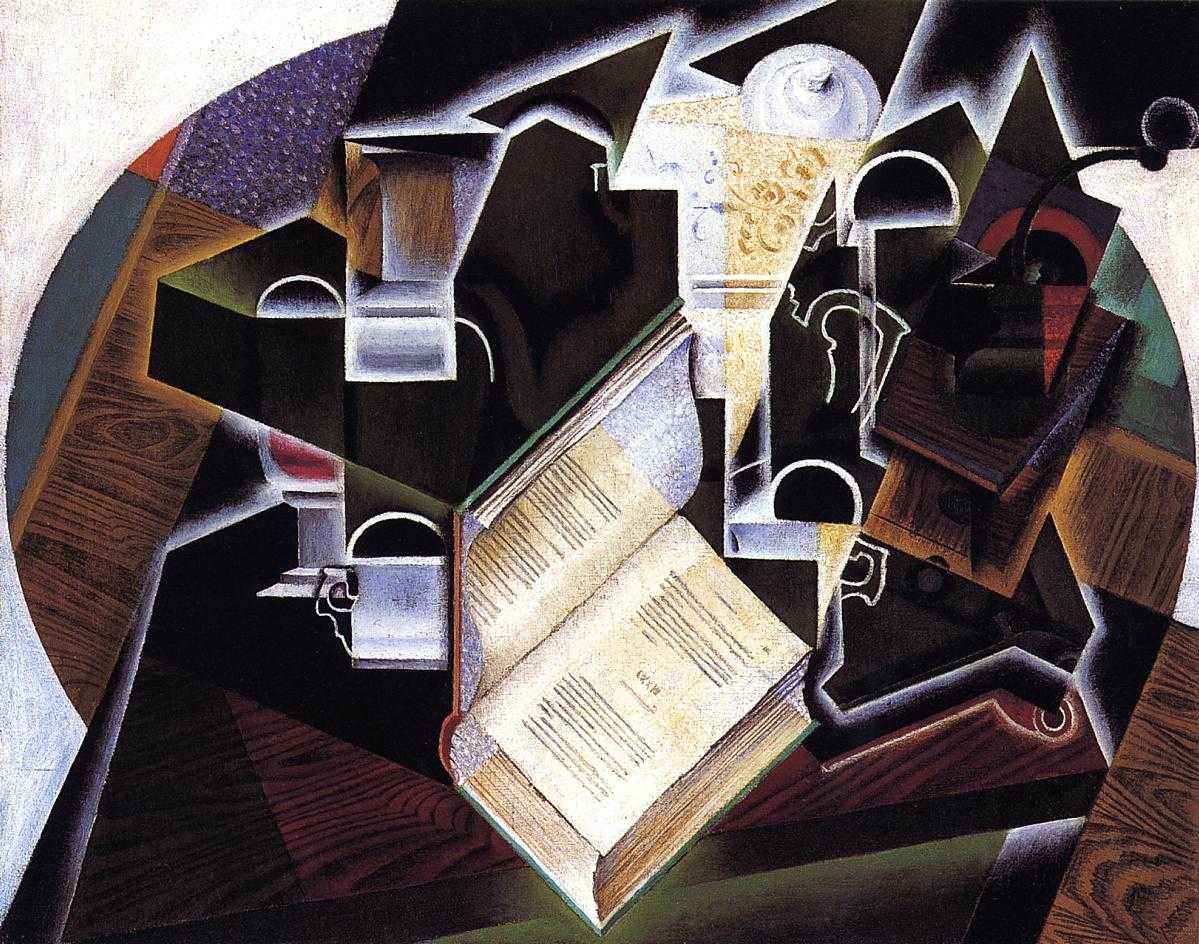
Confucius The Best 6 Books to Read
Confucianism is a philosophical tradition based on the teachings of ancient Chinese philosopher Confucius (551 BCE - 479 BCE), who is considered to be one of the most significant thinkers in East Asian history.
In the 2,500 years since Confucius offered his teachings, many interpretations and schools have arisen from his thought — some of which have been key guiding principles for various Chinese dynasties over the centuries.
However, the core idea that draws the diverse tradition of Confucianism together is that living a good life (i.e. following ‘Dao’) depends on the quality of our social relations.
The core Confucian texts of Confucius, Mengzi, and Xunzi (see our article detailing Mengzi and Xunzi’s famous disagreement on human nature here) encourage us to question and reflect on the roles we occupy, as well as the obligations we have in those roles — to friends, family, social communities, and even the global population.
An especially distinctive aspect of Confucianism is its emphasis on ritual practice, which you can explore further in our quick explainer on the power of ritual in Confucian philosophy.
In one concise email each Sunday, I break down a famous idea from philosophy. You get the distillation straight to your inbox:
💭 One short philosophical email each Sunday. Unsubscribe any time.
This reading list consists of the best books of and about Confucianism. From introductions to core Confucian texts, after reading the books on this list, you’ll understand exactly why this great philosophical tradition remains so influential today. Let’s jump in!
1. Confucianism: A Very Short Introduction, by Daniel K. Gardner
Published in 2014, Confucian specialist and professor Daniel K. Gardner’s Confucianism: A Very Short Introduction is a brilliant starting place for anyone with a budding interest in the subject.
Gardner offers a compelling survey of the philosophy and history of Confucianism, illuminating its answers to the questions of what makes a good person, as well as what makes a good government.
He also examines how the answers offered by Confucius shaped, and continue to shape, Chinese culture and society. Coming in at an accessible 152 pages, this is a very nice entry point to Confucian philosophy.
2. Thinking Through Confucius, by David L. Hall and Roger Ames
For a more in-depth and academic examination of the philosophy behind Confucian thinking, look no further than David L. Hall and Roger Ames’s 1987 Thinking Through Confucius.
In their rich analysis, Hall and Ames attempt to build a bridge between Western philosophy and Confucianism, investigating what philosophy as practiced by both traditions even means. A more demanding and challenging read, enthusiastic students of Confucianism will derive much value from Thinking Through Confucius.
3. How to Live a Good Life (According to 7 of the World’s Wisest Philosophies), by Philosophy Break
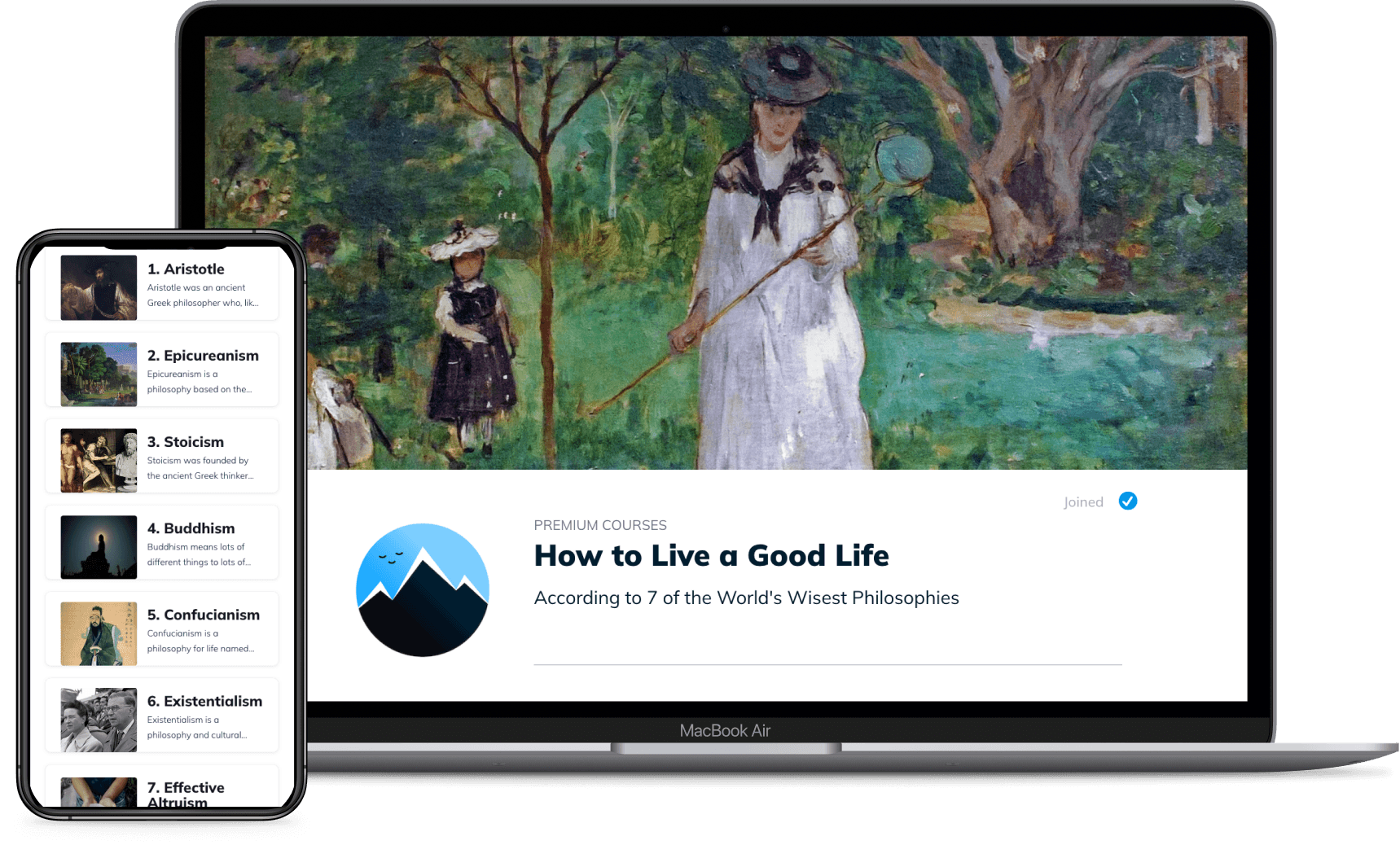
How to Live a Good Life (According to 7 of the World’s Wisest Philosophies)
BY PHILOSOPHY BREAK
★★★★★ (100+ reviews)
Get Instant AccessIf you’re interested in learning not just about Confucianism, but comparing its insights to six rival philosophies for life, look no further than the 2026 How to Live a Good Life (According to 7 of the World’s Wisest Philosophies). This concise online guide is instantly accessible from any device and distills the best and most important wisdom from Confucianism, Stoicism, Existentialism, and more.
Of course, we’re a little biased, as we produced this one — but if you’re seeking to understand some of life’s most influential ethical frameworks, examine the pros and cons of each, and discover how they might apply to your own life, then this is the guide for you. How to Live a Good Life (According to 7 of the World’s Wisest Philosophies) gets rave reviews, is better value than buying introductory books for all philosophies covered, and might be just what you’re looking for!
4. The Analects, by Confucius
Turning from introductions to primary Confucian texts, where better to start than with the most accessible collection of aphorisms and verses attributed to Confucius himself?
The Analects — here translated, contextualized, and introduced by famed Chinese professor and author D. C. Lau — are a collection of Confucius’s sayings brought together by his pupils shortly after his death in 497 BCE. Together, they express the Confucian code for living according to virtue. If you’re interested in Confucian philosophy, this beautiful work belongs on your bookshelf.
5. Mengzi: With Selections from Traditional Commentaries, by Mengzi
Mengzi was a Confucian philosopher who lived just one century after Confucius. His deeply influential interpretation and expansion of Confucian thought — based on the judgment that people are generally good — is translated and contextualized brilliantly by Bryan Van Norden in Mengzi: With Selections from Traditional Commentaries.
This edition is also accompanied by selected passages from the classic commentary of Zhu Xi, a Chinese philosopher who lived from 1130 to 1200. This essential primary work will augment the understanding of any Confucian student.
6. Xunzi: The Complete Text, by Xunzi
Xunzi was a Confucian philosopher who lived two centuries after Confucius. In contrast to Mengzi, Xunzi’s interpretation and expansion of Confucian thought was based on the judgment that people are inherently bad.
In Xunzi: The Complete Text, beautifully translated by Eric L. Hutton, Xunzi presents a sophisticated vision for Confucian ethics, politics, warfare, language, ritual, human nature, and more. This edition includes helpful contextual and exploratory notes, making this an essential work for any serious student of Confucian philosophy.
Further reading
Are there any other books you think should be on this list? Let us know via email or drop us a message on Twitter or Instagram.
In the meantime, why not explore more of our reading lists on the best philosophy books:

View All Reading Lists
Essential Philosophy Books by Subject
About the Author

Get one mind-opening philosophical idea distilled to your inbox every Sunday (free)

From the Buddha to Nietzsche: join 25,000+ subscribers enjoying a nugget of profundity from the great philosophers every Sunday:
★★★★★ (100+ reviews for Philosophy Break). Unsubscribe any time.

Latest Breaks
Each philosophy break takes only a few minutes to read, and is crafted to expand your mind and spark your curiosity.
